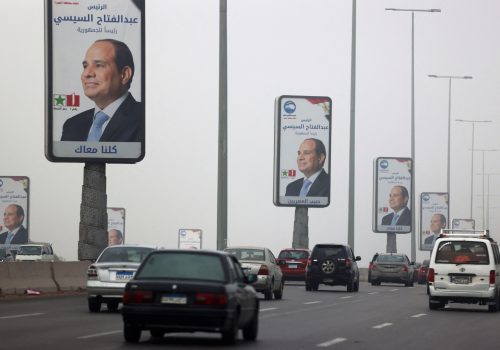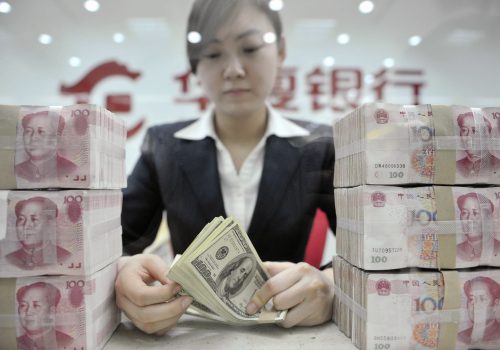Unraveling Egypt’s political economy puzzle: It’s more than just economics
Egypt is a country blessed with natural gifts and unique geographical advantages. Situated at the crossroads of Africa and the Middle East, Egypt’s strategic location is underscored by the significance of the Suez Canal, a vital maritime route connecting North America and Europe to the Indian Ocean. This canal stands as one of the busiest shipping lanes globally, emphasizing Egypt’s pivotal role in international trade.
Moreover, Egypt is renowned for its rich cultural heritage, boasting seven UNESCO World Heritage Sites. These treasures include the Great Pyramid of Giza, one of the seven wonders of the ancient world. The allure of Egypt’s cultural legacy, coupled with competitive travel costs due to the substantial devaluation of the Egyptian pound (LE), positions the country as a pivotal travel destination with immense potential for tourism revenues.
In addition to its cultural wealth, Egypt possesses a substantial human capital base, with a population of about 115 million people, representing approximately 1.4 percent of the global population. Notably, 60 percent of Egypt’s population is under thirty, highlighting a sizable workforce poised to enter the job market. Egypt also benefits from abundant sunlight and elevated wind speeds, positioning the country as an optimal site for renewable energy sources. The burgeoning renewable energy market in Egypt holds significant economic potential, amounting to billions of dollars.
However, despite all its inherent advantages, the economy has been grappling with persistent challenges for nearly seventy-five years. High poverty rates continue to plague the nation, with World Bank statistics indicating a rise in the poverty rate, with the proportion of the population below the poverty line increasing from 25.2 percent in 2010 to 32.5 percent in 2017–2018.
Egypt’s tourism revenues have also remained modest, averaging around $8–$9 billion annually between 2014 and 2022, despite the country’s potential as a premier tourist destination. In comparison, the United Arab Emirates (UAE) has consistently generated higher tourism income, averaging around $30 billion annually during the same period, and is projected to reach $60 billion by 2028.
SIGN UP FOR THE THIS WEEK IN THE MIDEAST NEWSLETTER
Additionally, Egypt’s foreign direct investment (FDI) inflows have been relatively modest, amounting to $11 billion in 2020. This figure pales in comparison to that of other middle-income countries that have attracted significantly higher FDI inflows for the same year, such as India ($50 billion), Brazil ($70 billion), or South Africa ($90 billion). Egypt also has a chronic trade deficit, which registered $37 billion by the end of 2023, down from $48 billion in 2022.
Moreover, Egypt has grappled with fiscal deficits, averaging 9.5 percent of gross domestic product (GDP) over the past decade. As a result, the government has accumulated a substantial public debt, with external debt stocks, including International Monetary Fund (IMF) credit, rising from an average of $40 billion post-Arab Spring to $130 billion in 2020, comprising nearly 70 percent long-term debt, which poses significant challenges for the economy.
The economy’s vulnerability is further compounded by its reliance on volatile revenue sources, including tourism, the Suez Canal, and foreign remittances. Therefore, external shocks—such as the pandemic, the Ukraine war, the Gaza war, and the recent Red Sea attacks—have exerted additional economic pressure on Egypt. As a result, the current account, which closed with an average surplus of $2 billion between 2002 and 2007, reversed to a significant deficit of $16 billion by the end of 2022 and is projected to settle at $9 billion by the end of 2024.
Consequently, the Egyptian pound has experienced substantial depreciation, losing more than 70 percent of its value since early 2022, making it the sixth worst-performing currency globally since the beginning of this year. Delayed adjustments to the foreign exchange policy have resulted in the emergence of a parallel market, with the Egyptian pound plunging to LE 68–70 per US dollar, compared to a fixed rate of LE 30–31 per US dollar in the formal banking sector, where the supply of foreign currency is minimal. Central bank reserves of foreign currencies have also dwindled, declining from $44.6 billion in 2019 to $32 billion by the end of 2022.
But why does Egypt, despite its considerable potential, encounter such notable economic hurdles? While many mainstream economists attribute the crisis to macroeconomic mismanagement, acknowledging the importance of macroeconomic stability for growth, this explanation does not capture the full complexity of the issue. Instead, Egypt’s sluggish, and relatively modest, economic transformation can be better understood through the lens of the “political economy of ideas.” This theory, elucidated by Harvard economist Dany Rodrick in his paper “Ideas Versus Interests in Policymaking,” underscores the pivotal role of ideology as a catalyst for shaping public policy and institutional change.
The concept of “ideology” or the “influence of ideas” is a fundamental tenet in political economy, offering insights into why some nations progress more rapidly than others and, conversely, why some lag behind.
Historically, Egypt’s economic ideology long adhered to an inward-looking, import-substitution approach under the Gamal Abdel Nasser regime (1950–1970), a trend common among developing economies during the decolonization era. Key features of the Nasser regime included the nationalization of private assets, management of state enterprises, import substitution, and restrictions on exports.
Later, the Anwar Sadat regime (1970–1981) sought to reverse this trend by introducing a new pro-market investment legislation known as the “open door” policy. However, his ideology was rejected widely, as evidenced by the 1977 Bread Riots. In 1981, Hosni Mubarak came to power in the wake of these riots, which prevented him from initiating similar fundamental reforms. Instead, his government used a mixed approach, implementing partial, piecemeal pro-market policies while relying on strong remnants from the Nasser era. This pattern persists to this day. This mixed ideology has been manifesting, for example, in the slow progress of the public asset-management (privatization) program, and the relatively large size of the public sector in the economy.
However, for a nation to fully embrace a pro-market stance, it must possess a strong ideological commitment to pro-market policies and clear political incentives to foster this ideology. For instance, the adoption of South Korea’s export-driven Industrialization Program (1962–1980) was guided by a long-term vision of joining the ranks of the most industrialized nations, culminating in the country’s successful accession to the Organisation for Economic Co-operation and Development (OECD) in 1996. Similarly, Turkey’s aspirations to join the European Union drove its pro-market economic reform and overall economic progress in the 1980s and 1990s. At the same time, economic reforms in post-apartheid South Africa have been predominantly driven by a strong commitment to business competitiveness and economic equity.
In comparison, Egypt has never fully embraced a long-term, target-driven, pro-market ideology. The economy continues to operate using piecemeal economic reforms, which are hindered by strong Nasser-era remnants, resulting in a slow and inconsistent pattern of implementation. This mixed approach has led to heightened economic uncertainties, posing challenges for both local and global investors. While investors may navigate political instability, economic policy uncertainty deters firms from hiring, investing, and accessing markets. Therefore, to address the fundamental challenges facing Egypt’s economy, it is imperative to assess and address the political economy prerequisites, not just focus on macroeconomic fundamentals. Without fostering a more robust pro-market ideology, both within the government and among the public, economic reforms in Egypt will remain trapped in a cycle of stagnation for years to come.
Racha Helwa is the director of the empowerME Initiative at the Atlantic Council’s Rafik Hariri Center for the Middle East.
Further reading
Thu, Feb 8, 2024
Houthi attacks on ships in the Red Sea add to Egypt’s economic troubles
MENASource By Shahira Amin
The decline in Suez Canal revenues has put further strain on Egypt's already faltering economy at a time when the country faces a severe foreign currency shortage.
Thu, Dec 7, 2023
President Sisi’s third term will be his biggest challenge—not the upcoming Egyptian election
MENASource By Shahira Amin
While it is certain that Abdel Fattah el-Sisi will win a third term, it is uncertain what will happen after the vote and when the Gaza war is over.
Wed, Dec 13, 2023
China’s de-dollarization message finds a receptive audience in North Africa
MENASource By
A coordinated and concerted de-dollarization effort in North Africa poses a significant threat to US interests in the region and the African continent at large by existing regional trade groupings and agreements.
Image: A man rides a bicycle as he carries breads on his head along a busy street near a poster of Egypt's President Abdel Fattah al-Sisi from the campaign titled “Alashan Tabneeha” (So You Can Build It), for the upcoming presidential election in Cairo, Egypt, January 22, 2018. REUTERS/Amr Abdallah Dalsh


